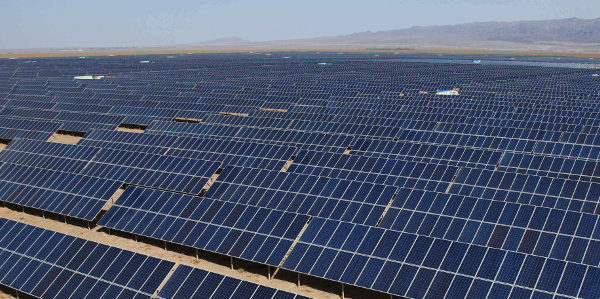The system will look at curtailment risk and provide guidance to prospective developers based on criteria such as site conditions, regional subsidy levels and local government support.
The information will help to shape the establishment of the government’s yearly PV installation quotas, according to an online statement. The authorities may reduce quotas for areas in which large amounts of solar capacity have gone to waste.
Bloomberg New Energy Finance (BNEF) has estimated that roughly 3.28 terawatt-hours of solar capacity was curtailed from the Chinese grid in 2016.
The curtailment of other clean-energy projects, including wind farms, has also been a significant problem for years. However, the NEA unveiled plans at the beginning of this year to facilitate CNY 2.5 trillion ($378.6 billion) of new investment in solar, wind, hydroelectric and nuclear power projects through the end of this decade.
PV developers completed roughly 24.4 GW of solar projects in the first half of this year, according to NEA data. New capacity additions rose 9% year on year in the January-June period. The country’s cumulative PV installations reached about 77.8 GW at the end of 2016, according to the International Renewable Energy Agency (IRENA).
Last month, the NEA and the National Development and Reform Commission (NDRC) announced plans to set up a new wholesale market for distributed-generation (DG) electricity on a pilot basis in the first quarter of 2018. The NEA said that the government will assess the trading system, under which project owners will directly sell electricity to consumers, from the end of next June.
This content is protected by copyright and may not be reused. If you want to cooperate with us and would like to reuse some of our content, please contact: editors@pv-magazine.com.



By submitting this form you agree to pv magazine using your data for the purposes of publishing your comment.
Your personal data will only be disclosed or otherwise transmitted to third parties for the purposes of spam filtering or if this is necessary for technical maintenance of the website. Any other transfer to third parties will not take place unless this is justified on the basis of applicable data protection regulations or if pv magazine is legally obliged to do so.
You may revoke this consent at any time with effect for the future, in which case your personal data will be deleted immediately. Otherwise, your data will be deleted if pv magazine has processed your request or the purpose of data storage is fulfilled.
Further information on data privacy can be found in our Data Protection Policy.